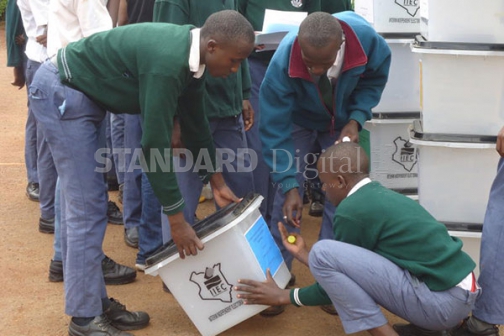×
The Standard e-Paper
Truth Without Fear

NAIROBI: No one should be allowed to sell or buy petrol in a jerican without a letter from the area authority, the National Disaster Management Unit has recommended in its report on schools arson attack.
Also, the Independent Electoral and Boundaries Commission (IEBC) has been preferred as the sole electoral body to handle school elections as a move to avoid likelihood of teachers imposing leaders on students. The elections include selection of head boys and head girls, prefects, dormitory heads and monitors.